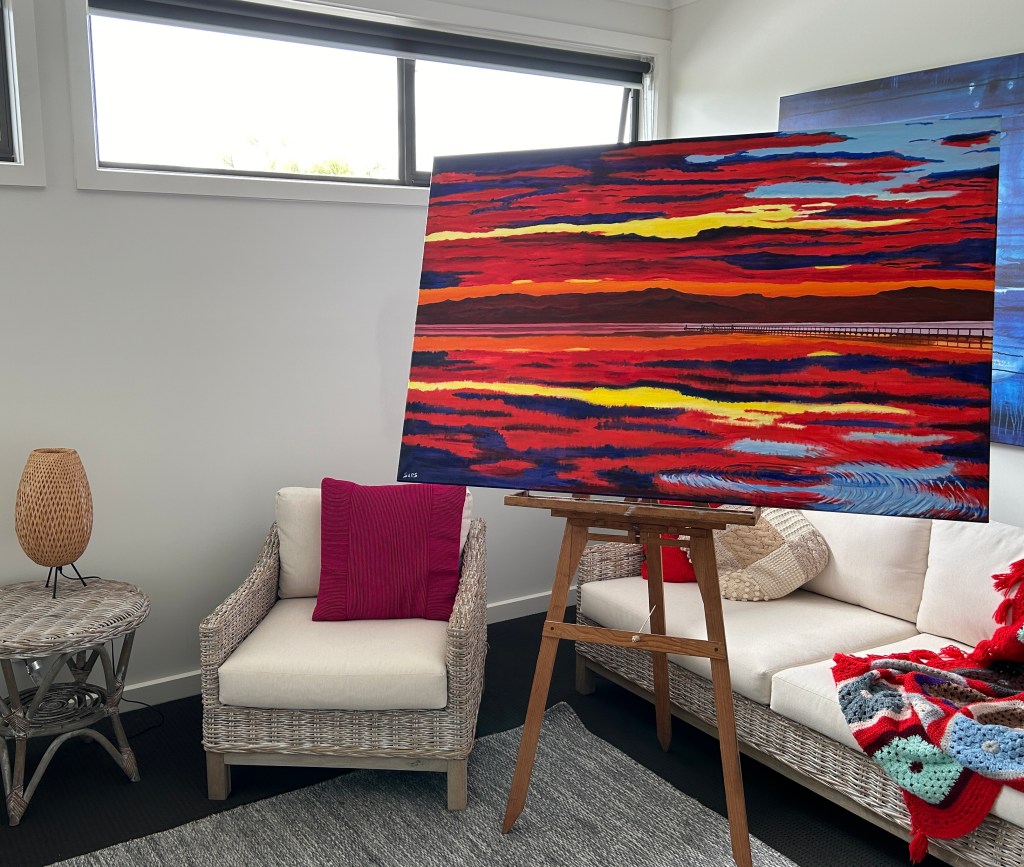The half light of morning is my favourite time of day. I sit at the desk in my study looking out at the dawn, watching the colours appear, listening to the birds calling, and the distant traffic building.
I write in my journal. Not Morning Pages anymore as that habit is unnecessary now. This practice steered me through the difficult times. It helped me to sort through the things that irritated me or upset my sensitive equilibrium. With retired life, this need has lessened significantly.
I realise we are all subject to jumping into the “rat race” to be involved in this life. So, we push ourselves to achieve and acquire for decades. We rush and learn and train and work. For how many years did I wake to the alarm clock in order to rush through the day meeting all of the deadlines? It is exhausting.
Now though I love this slow life. And I have discovered some kindred spirits via the online world. Slow living is something wonderful and enriching. The Cottage Fairy offers videos on YouTube that shows her beautiful, natural, and considered life in a beautiful rural environment. The Artist Valerie Lin paints and sells her beautiful artworks online. Her videos too are pretty, precise, and mindful. These two young women offer an alternative approach about how to live in this world and not get drawn into this daily grind. I wish them well with their endeavours.
Inspired by their gentle and authentic reminders I returned to my own art. While my own “style” differs to theirs, I managed to complete an oil painting of a sunset with reflections on water on a large canvas. This topic differs greatly from my usual subjects. I often use variations of green for foliage and not the bright orange, yellow, and reds that I have used here. Of course, this scene reminds me of the many sunsets we saw when we travelled around Australia during the pandemic years.
Recently we spent a week bush-camping on the banks of a river with some other people. It was nice to get away from the traffic, signs, restrictions, tourists, and the daily news. While the others fished, I was content to sit beside the river and watch the water flow, the trees rustle, and the birds fly about. It is a treat to see Kingfishers and I came face to face with one wayward flier. A few snakes swam across the river making us careful while tramping around in the thick crunchy leaf matter.
At night we gathered around a campfire, talking, laughing, and trying to identify satellites, stars, and planets in the clear night sky.
And while I soaked up the quiet and gentle sounds of the natural environment, these colours of the typical Australian bush do not inspire me. The olive-green river, and a million shades of brown and grey did not give me cause to pick up a coloured pencil or paintbrush.
Now another pause between projects. What will I paint next? I do have an unfinished painting on my easel that I want to complete. I recall the encouraging words of Valerie Lin and know that this is my work, and I can do whatever I choose. I must remind myself to NOT watch the News. Especially when there are so many inspiring and positive things in the online media world. Rich Roll, Simon Hill, Rip Esselstyn, and many others.



